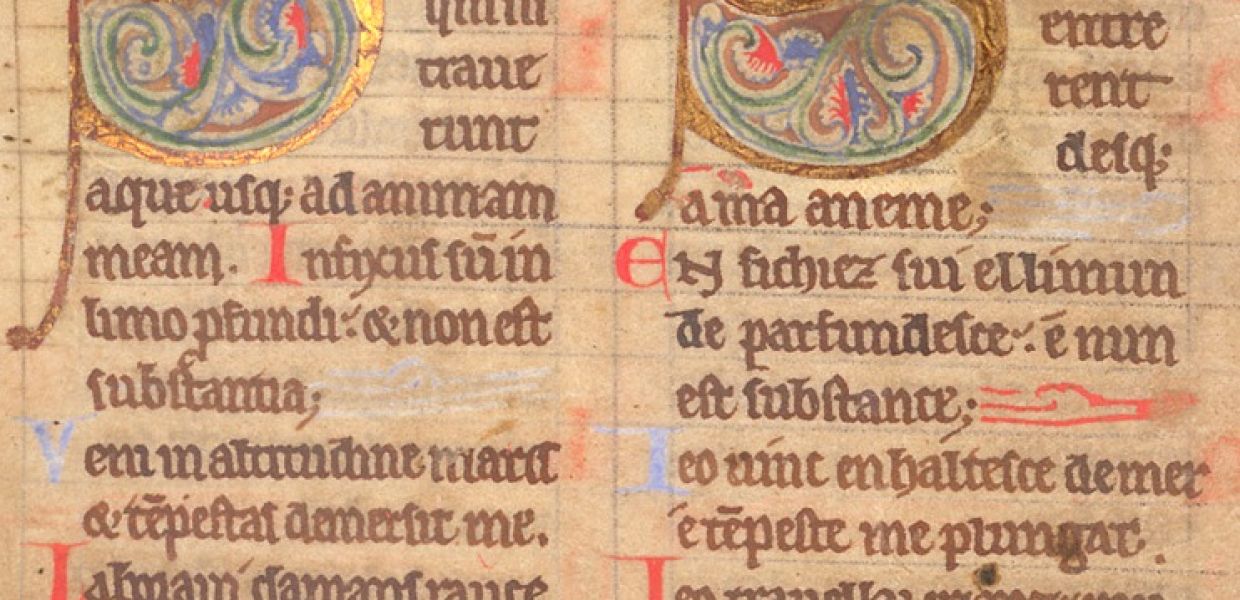Medieval manuscript databases
The Second Europeana Research Grants programme gave the opportunity to some great researchers to develop their projects with Europeana funding. The Europeana grant winners are currently busy working on their projects but have managed to find the time to answer some questions.
In this interview series, we highlight their work, their lives, and what digital cultural heritage means to them. The first grant winner in this series is Dr. Krista Murchison, lecturer and researcher at Leiden University in the Netherlands. Her project for Europeana is called ‘A Digital Database of Manuscripts and Intercultural Dialogue in Post-Conquest England’.
What is your current academic position and what’s your research focus?
My research and teaching explore how medieval English literature was influenced by the continental tradition, among other things. In my research, I look at both English and French literary traditions from medieval England, primarily from a book history perspective. Medieval manuscript culture—in which writing was constantly being shared, commented on, imported, and reused in new formats—has a lot in common with digital culture, and I look at how the similarities between them can help us understand medieval texts and ourselves.
I teach both English and French medieval literature as a lecturer at Leiden University, and I’m currently teaching a bilingual MA course that explores how medieval stories like the Arthurian legends were reimagined and reinterpreted as they were brought across the channel. I also incorporate some digital projects into my teaching; just as an example, my seminar class last year created this digital edition of some little-known medieval lyrics (https://kristamurchison.com/teaching-projects/), and I’m currently collaborating with a small team to produce a fun online adaptive platform for teaching Old English (launching in a couple of months!).
How did you discover the Europeana Grants Programme and why did you decide to apply for it?
There has been increased interest in the status of French in England after the Norman Conquest of 1066, but this fascinating linguistic situation is still not well understood. To help us understand this situation better, I dreamed of creating a digital database containing linguistic data for all of the ~958 manuscripts from medieval England that contain French literature. When my institute sent me an email about the Europeana Grants Programme, it seemed like my project might be a good fit.
How does access to digital cultural heritage influence your research?
Digitisation of medieval manuscripts has been so important to medievalists in general. There are still many reasons to work with a manuscript in person, but among other benefits, the digitisation of medieval manuscripts allows us to visually compare manuscripts from different collections, to see new details on manuscripts and to access manuscripts remotely. The kind of project I’m working on now, which involves checking linguistic data of a large number of manuscripts, wouldn’t be feasible without digitised manuscript collections.
Digitisation is also so important from a preservation perspective. Yesterday, I was gathering catalogue data for a manuscript of epic poetry that survived 600 years, only to be destroyed during the Second World War. If the manuscript had been digitised, and the images stored on multiple servers, this would have mitigated somewhat the loss. Cultural heritage hubs like Europeana are so valuable for ensuring that a large group of people can view and study heritage objects—not just today, but for centuries in the future.
How will Europeana help you achieve your research goal?
The Europeana grant funds have been crucial for the creation of, and research for, the digital project, so I’m very grateful for Europeana’s support. Europeana’s own digital collections are providing data for establishing the linguistic profile of some of the manuscripts that will be analysed, particularly those housed in the Bibliothèque nationale de France.
Once complete, the database will give new insight into the areas, periods and contexts in which French circulated in medieval England, and help us better understand a particularly rich linguistic situation. I’ve been using my Twitter account (@drkmurch) for updates about the project, so I encourage anyone interested in it to check for further updates there!
Find more information in Krista Murchison’s report below and hear from the other grant winners Caterina Preda and Matteo Romanello. You can also explore the project website and dataset.


